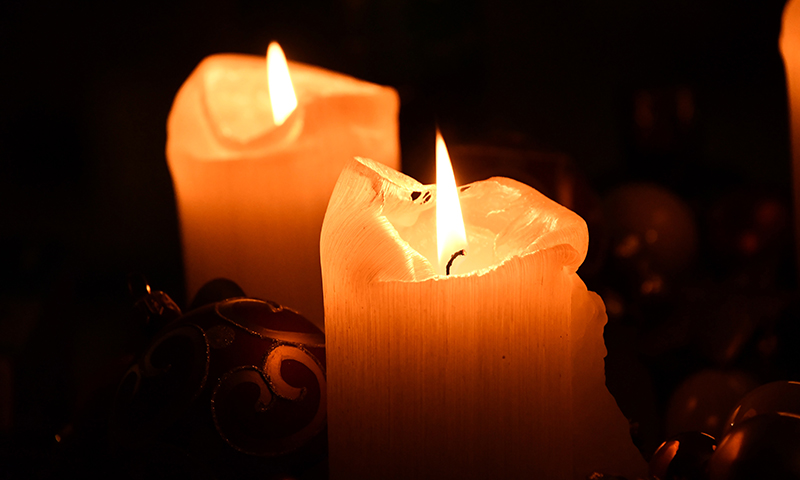
How Much Can You Sue For After Wrongful Death in West Virginia?
It is never easy to lose a loved one, but it can be especially heart-wrenching when that person dies due to someone else’s negligence. In such cases, a wrongful death lawsuit can bring monetary compensation that will pay for financial losses due to the death and bring some measure of closure. That compensation varies depending on the case; wrongful death cases can be worth a great deal, but specific outcomes depend on available coverage, facts of the case, economic losses, and many other factors.
Still, every wrongful death case is different, and how much you can sue for in a given case depends on a variety of factors. That is why it is important to hire an experienced attorney who can help determine possible damages and help you recover what you are entitled to.
In this article, we explain what a wrongful death claim is, who may receive compensation from a wrongful death lawsuit, the types of damages you can recover, the factors that influence a settlement award, and examples of how much you could receive in a settlement.
If you’ve been affected by a tragedy due to someone else’s negligence, call our West Virginia wrongful death lawyers. We will speak to you for free about your case, and discuss a path forward.
What is a West Virginia Wrongful Death Lawsuit?
A wrongful death lawsuit in West Virginia is a type of personal injury lawsuit filed by a decedent’s family alleging that a person, corporation, or government committed negligence or misconduct that caused the decedent’s death. Such lawsuits can involve any number of situations, such as car accident injury lawsuits, industrial accidents, and medical malpractice.
Like most personal injury lawsuits, a wrongful death lawsuit typically seeks money damages as financial compensation for the victim’s death. To be successful, the plaintiff must establish that the defendant was negligent and that their negligence caused the death. Surviving family members also must show that they experienced pain and suffering, financial hardship, loss of companionship, and/or other damages as a result of the death.
Whoever is appointed as the personal representative of the decedent’s estate may file a wrongful death lawsuit. That said, the plaintiff in the lawsuit will be considered the estate itself.
In West Virginia, a wrongful death lawsuit usually must be filed within two years of the decedent’s death or it will be barred. There are some exceptions, such as with medical malpractice lawsuits. To protect your rights, talk to an experienced attorney to make sure your case is filed within the applicable statute of limitations.
Who May Receive Damages From a Wrongful Death Lawsuit?
In a wrongful death lawsuit, financial compensation or damages for the family members is a critical part of helping them recover. Every wrongful death claim is assessed on its own merits, and the amount of any settlement or verdict depends on the specific circumstances of the case.
Several different groups of people could be entitled to receive compensation. These include the decedent’s surviving spouse, children, parents, siblings, other dependents who financially relied on the decedent, and others.
In a WD settlement, either the parties agree to the distribution among statutory beneficiaries (and approved by the judge), or there is a settlement on the global amount, and, in the absence of agreement among beneficiaries, the judge will decide the distribution.
What Types of Damages Are Available in a Wrongful Death Lawsuit?
Damages in any type of personal injury lawsuit, including a wrongful death lawsuit, can be either economic or non-economic. Economic damages represent financial losses caused by the wrongful death and can include, for example, loss of the decedent’s income and the value of any services they provided, such as child care or elder care; the decedent’s medical expenses stemming from their injuries incurred prior to their death; and funeral expenses.
Non-economic damages represent the pain, suffering, and emotional trauma caused by the wrongful death. WV Code §55-7-6 provides that non-economic damages can include “sorrow, mental anguish, and solace which may include society, companionship, comfort, guidance, kindly offices and advice of the decedent.”
In addition, a court can award what are known as punitive damages, which are designed to punish a defendant for particularly egregious behavior such as drunk driving and deter such behavior in the future.
What Factors Can Influence a Settlement Award?
A number of factors can influence a settlement award in a wrongful death case. These include how strong the evidence is, how much pain and and suffering were experienced by the decedent and/or their loved ones, the extent of the defendant’s insurance coverage, etc.
If a case goes to trial, any damage award is reduced under the state’s comparative fault standard by the percentage of the decedent’s own negligence, if any, that contributed to their death.
For example, if the decedent was partially at fault in a car accident that caused their death, their beneficiaries’ damages award would be reduced by the percentage that the decedent was found to have contributed to the accident.
Every case is different, so consult an experienced attorney to determine the factors that might influence an award in your case. This will give you a better idea of the potential outcome and help your loved ones secure the compensation they deserve.
How Much Could I Receive in a Wrongful Death Lawsuit?
West Virginia law does not generally limit how much a plaintiff can receive for damages in a wrongful death settlement. However, the state does cap noneconomic damages (i.e. pain and suffering) at $500,000 in actions for professional malpractice, and $5 million for non-economic damages resulting from commercial trucking accidents.
As mentioned above, wrongful death settlements in West Virginia vary greatly. However, some settlements can be remarkably high. For example, in Plaintiffs v. Recycling Plant (West Virginia 2018), three men were killed in an explosion at a metal recycling plant due to safety violations, and the company that owned the plant agreed to settle all three cases for $33 million.
Finally, it is important to reiterate that any settlement you might receive depends on the facts of the case, and an experienced attorney is best able to provide an estimate.


